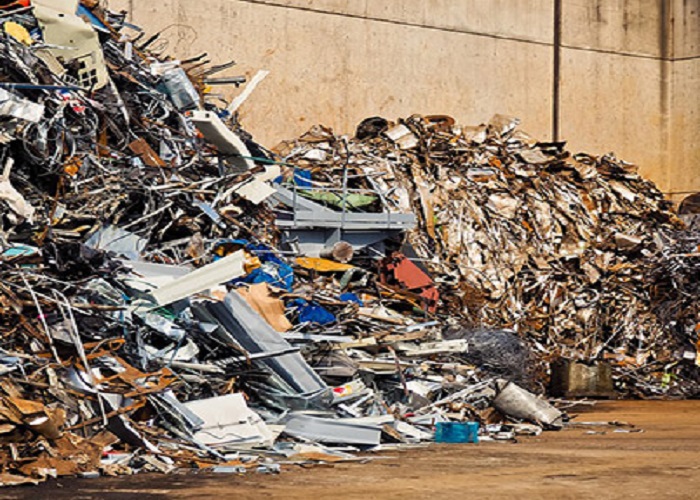Metal regeneration plays a pivotal role in sustainable resource management. As the demand for metals continues to rise, reprocessing becomes essential in reducing the environmental impact of mining and conserving natural resources. Metal regeneration facilities are at the forefront of this effort, employing advanced techniques to maximise resource recovery and efficiency. This article explores how these facilities operate, the methods they use, and the benefits and challenges associated with metal recycling.
Understanding the Significance of Metal Recycling
Metals are limited resources, including copper, aluminium, steel, and other metals. The highly resource-intensive process of extracting and refining them from their mineral ores greatly degrades the environment. There are various methods in which we might lessen these adverse consequences by recycling and repurposing scrap metal.

- Resource conservation: Recycling metals reduces the need for new mining and extraction, thereby conserving natural resources. For example, recycling steel saves about 74% of the energy required to produce it from raw materials.
- Energy efficiency: Manufacturing products from recycled metals consumes less energy compared to using virgin materials. This reduction in energy consumption directly translates into lower greenhouse gas emissions.
- Waste reduction: Metals are non-biodegradable, and when disposed of in landfills, they can pose long-term environmental hazards. Recycling helps divert these materials from landfills and prolongs their useful lives.
For instance, the recycling efforts at scrap metal Tynong contributes significantly to these environmental benefits by processing and repurposing discarded metal, thereby supporting a more sustainable cycle of metal usage.
Methods of Metal reprocessing
Metal reprocessing facilities employ several methods to maximise resource recovery:
– Mechanical Processing: This involves physical processes like shredding, shearing, and baling to prepare metals for further treatment.
– Thermal Processing: Metals are melted in high-temperature furnaces to separate and purify them. This process is essential for recovering metals from complex alloys and composite materials.
– Chemical Processing: Chemical treatments, including hydrometallurgical and pyrometallurgical methods, are used to extract and purify specific metals. These processes involve chemical reactions that dissolve and separate metals from impurities.
Environmental and Economic Benefits
Metal salvage offers significant environmental and economic benefits:
– Energy Efficiency: Reused metals consumes less energy compared to extracting and processing virgin metals. For example, recycling aluminium saves up to 95% of the energy required to produce it from raw materials.
– Reduction of Greenhouse Gas Emissions: By reducing the need for mining and primary metal production, recycling lowers greenhouse gas emissions, contributing to climate change mitigation.
– Resource Conservation: Reclaimation conserves natural resources by reducing the demand for raw materials. This is particularly important for non-renewable resources like metals.
– Economic Savings: Reprocessing reduces production costs for industries by providing a cheaper source of raw materials. It also creates jobs in the recycling and manufacturing sectors.
Challenges in Metal Processing
Despite its benefits, metal recycling faces several challenges:
– Contamination: Scrap metal can be contaminated with non-metallic materials, hazardous substances, or other metals, complicating the recycling process.
– Technological Limitations: Some metals and alloys are difficult to separate and recycle due to their complex compositions. For instance, scrap metal Tooradin might include various types of metals that require advanced sorting and processing technologies.
– Market Fluctuations: The value of recycled metal is subject to market fluctuations, which can impact the profitability of recycling operations.
Sustainable Solutions for Metal Recycling Challenges
To address these challenges, the metal reprocessing industry is adopting sustainable solutions:
– Improved Sorting Technologies: Advances in sensor-based sorting and artificial intelligence are enhancing the accuracy and efficiency of metal separation.
– Closed-Loop Recycling Systems: Developing closed-loop systems, where recycled metals are continuously reused in manufacturing, can reduce the reliance on raw materials and improve sustainability.
– Regulatory Support: Government policies and incentives can promote recycling practices and support the development of advanced recycling technologies.
– Public Awareness and Participation: Educating the public about the importance of recycling and how to properly sort and dispose of recycled metal can improve the quality and quantity of recyclable materials.
Contact us today to recycle!
At SGS Metal Alloys, we are committed to promoting sustainable metal recycling practices. Join us in our mission to conserve resources, reduce energy consumption, and minimise environmental impact. By choosing to recycle your scrap metal with us, you are making a positive contribution to the environment and supporting a more sustainable future.
Contact us today to learn more about our advanced recycling techniques and how we can help you manage your scrap metal efficiently. Together, we can make a difference—one piece of metal at a time. Visit our website or call us to get started with SGS Metal Alloys, your partner in sustainable metal recycling.
Phone : 03 9088 0299
Email: sgsmetalalloys@gmail.com
